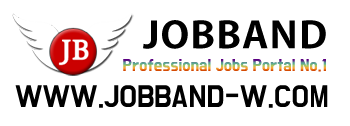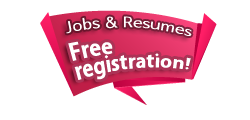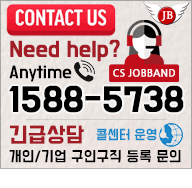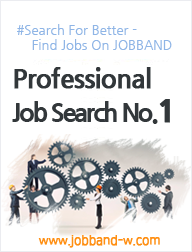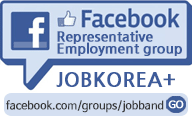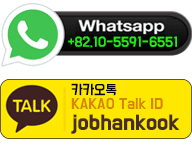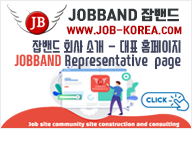Looking for ways to impress a potential employer? Want to make your resume or job application stand out from the pack? During one two week time period, a Human Resources staff member shared that she reviewed 485 resumes and applications for 18 different positions. They then interviewed 23 candidates and brought six back for a second, more intense round of interviews.
Believe this. This HR staff person can tell you what really rang her chimes. You may find that some of this advice is like, duh, who doesn't know this job search advice? Some of this advice may surprise you. Some may even make you angry because it doesn't seem fair or right to you.
Not all employers will agree with this advice. But why take a chance when you want to find the best, most well paying, exciting job for you?
How to Impress a Potential Employer
Here are thirteen ways in which you can impress a potential employer.
1. Apply for jobs for which you qualify.
HR's no hire pile of applications is increasingly made up of people who don't even remotely qualify for the posted position. These job applications frequently consist of a resume in an envelope. Why waste the paper, the stamp and the time? Ditto for an online application or resume. It's become increasingly easier to spam a potential employer with unqualified applications.
If you find yourself applying because it's an area of work you might want to get into, or think you'd like, don't bother. Unless you can make the stretch and fit between your qualifications and background and the described opening, you are wasting your time.
Each application or resume gets less than thirty seconds of review time. You need to quickly qualify yourself as a potential candidate because the employer doesn't have or take the time to do it for you.
2. Write a targeted cover letter for the position for which you're applying.
Address the targeted cover letter that introduces your key qualifications and highlights your fit with the position to the person conducting the candidate search, when known. And, no, don't presume familiarity and write, "Dear Susan."
Until the employer knows you, her name is "Ms. Smith." Additionally, the cover letter needs to specifically mention the available position for which you are applying. Spelling and correct grammar do count. So does the spacing of words on the page, an attractive overall appearance, and the feel of the paper in a paper resume.
Online applications, which are the norm, must be targeted and formatted appropriately. Pay just as much attention to spelling, grammar, and appearance. Recognize that some online application systems do not permit the submission of a cover letter and many employers don't want nor read cover letters anymore. If the potential employer does not state to submit a cover letter, it is optional.
3. Target the resume to the job.
Would you like to know how many people are looking for a "challenging opportunity to utilize my skills with a progressive employer who will provide opportunities for growth?" Don't even ask; the answer will break your heart if this is how you routinely describe the position you seek in your resume.
Even more importantly, with instantaneous printing, no one needs to photocopy 100 resumes at an instant print store for distribution. Customization counts. Customization is everything when you are looking at substantially different opportunities, too.
Say, you are looking for a training position or a marketing position. The identical resume won't sell your skills for either field.
4. Lead with your strengths.
What makes you different from 40 other applicants? On your customized resume, start out with the background and experience most important for the position you seek. The stage of your career is also highly relevant to the placement of information on your resume. If you are just graduating from college, lead off the first portion of the resume with your education and degree.
A seasoned veteran will start with an accomplishment summary with key achievements and then list jobs, titles, companies, and responsibilities chronologically. A network administration applicant should lead with his or her certifications (Microsoft Certified Systems Engineer (MCSE) and list software and hardware experience (Microsoft Exchange, SQL Server) before listing jobs and education.
The key is to make it easy for the resume reviewer to see that you are qualified for the position. You want your resume in the coveted "yes pile" awaiting an interview or phone interview.
Looking for more ideas about getting your foot in the door for the face-to-face interview? You're unlikely to obtain a job offer without a highly effective interview. You have a couple more hurdles to cross, however, before you get that coveted opportunity to impress a potential employer.
5. Most employers hate fishing phone calls.
These are candidate phone calls or emails that have absolutely no purpose other than to make a potential employer notice an applicant. Wonder how many people call an HR office each week to see if the office has received their resume?
Lots—and only the people with whom HR doesn't want to speak—they would have called you if you were a contender. It's a wonderful opportunity for you to make a lasting bad impression.
An HR staff person said to one caller, "You are calling to ask me to look through this pile of 200 resumes to see if I have received yours? If you are that uncertain, why don't you just send it again?" Fishing-for-attention phone calls rarely help and usually brand you as a pain.
They steal the company's time, irritate the resume screener and generally, accomplish nothing in your favor. In a client company, callers, and especially repeat callers, are known as "stalkers."
6. If you want a call from a recruiter or potential employer, give them a smartphone number.
Give them this number or another number at which they can reach you and talk. Many resumes received by HR list only a home phone, although this is becoming less common. Big mistake though. HR staff members give up on candidates with whom they play phone tag for days.
No, don't give a potential employer your number at your current job. But, you really need to honor the potential employer's time by giving them your smartphone number. HR staff needs to reach you to set up a time and date for the phone screening.
7. Yes, phone screening.
Forward-thinking employers don't waste their time or yours without an initial telephone interview. Be prepared to schedule a date and time, usually during the 8-5 p.m. work day. (Your potential employer is already working ten hour days—you won't endear yourself if you ask them to work more.) The phone interview eliminates most of the yes resumes from contention.
Be prepared for a mini-interview and to give the interviewer your salary expectations. People who play coy when they are asked about salary are often not invited to visit in person. Why would the employer waste staff time interviewing an applicant who is making $70,000 or more, currently, for a $50,000 job?
Employers can eliminate this problem completely by posting the salary range for the position in their job postings—but still, not all employers follow this recommendation. This is recommended if you want to attract the best candidates who don't want to play games or to have to negotiate a huge salary increase.
And no, you are not going to be such a wonderful candidate that the employer blows away the salary range. In nine out of ten situations, the salary range is set with a large number of variables in mind including the local job market and the salaries of coworkers.
8. Preparation counts for both the phone screening and the potential face-to-face interview.
If the HR staff member has set up a time with you for a phone interview, research the company in advance. Visit the website to see what the employer does. Many organizations even describe their company culture on their websites. If you take just a few minutes to do your homework, the quality of the interview will go up exponentially.
Think about the HR staff person's time, too, as your potential employer. Imagine the decisions that are made about you when you ask for directions to the company while driving your car and talking on your smartphone. "Wait a couple of minutes," one candidate said, "while I get somewhere so that I can write all of this down." Research the company location online first; call the company for directions as a last resort.
You've done the right things right. Your materials and credentials made a good impression. You passed the interview phone screening and you've been invited to the company for that all important interview. How do you continue to build the relationship with the potential employer that will lead to an eventual job offer?
9. Take time off work for the interview.
As highlighted earlier, don't expect the potential employer to extend their day by several hours to accommodate your schedule. If you're currently working and looking for a new position, hopefully, you've chosen the most ethical path and your employer knows. If you are unable to inform your employer, for any reason, hopefully, you've saved up your vacation time to use for your job search.
A recruiting employer is often willing to interview a good candidate late in the afternoon, but rarely will the interview extend past 6 p.m. (Remember, most potential employers started work by 8 a.m.) You don't want your potential to contribute as an employee assessed at the end of a ten hour day either.
10. Make the right, positive impression at both the interview and with the company staff.
Need the employer tell you to arrive early, dress up for the position for which you are applying and bring an additional resume with references? Remember to treat every person you encounter with dignity and respect.
The receptionist is reporting their impressions of you to the HR director. Count on it, especially in small- to mid-sized organizations. Be unfailingly polite throughout every interaction you have with the company. Each person is assessing your potential fit within their organization. Don't blow your chances by behaving boorishly.
11. You will be asked to fill out a job application.
So bring your resume and other needed information to complete the document. And, no, "See attached resume," doesn't cut it. It is likely your application information is entered into an employment database and used for company records, government reporting, and more.
The filled out application usually attests to the fact that all of the information you provided on it is true. It also allows the company to obtain your written permission to check your references, employment history, do criminal background checks if you are hired, and more.
12. The Interview Tells the Employer Whether You Fit the Culture
The actual interview is the subject of

